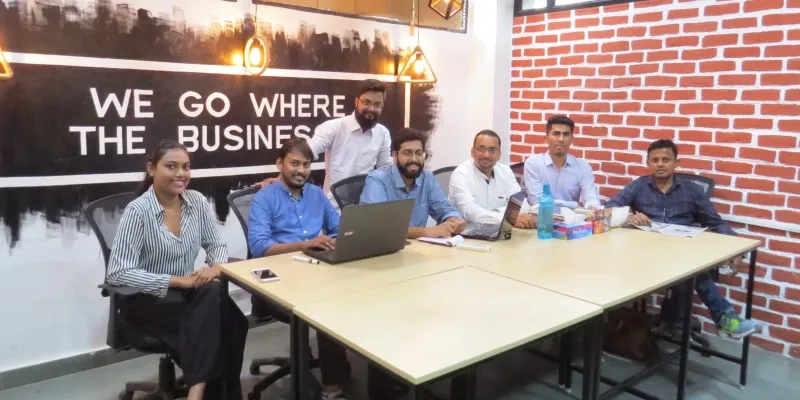Why bootstrapped hotel aggregator LuvStay is focusing on couple-friendly options
While most hotels turn away unmarried couples, Delhi-based hotel aggregator LuvStay promises safe, clean, and couple-friendly rooms.
It was 11 pm, and Sumit Anand and his girlfriend were scrambling to find a hotel in Jim Corbett National Park. What was to be a fun trip was turning out to be a nightmare for no hotel was willing to give the couple a room.
Sumit felt this was a problem that needed to be addressed rapidly, especially when he found that several of his friends had faced the same issue. That’s how LuvStay, a hotel aggregation platform with a difference, was born in 2016. The aim was one: to provide couple-friendly rooms for a few hours or a few days, depending on the needs of the consumer.
“It was challenge for Sumit. The situation wasn’t safe; the hotel staff asked bizarre questions. Also, some brought up the fact that the couple were of different religions,” says Karan Mago, Sumit’s friend and his Co-founder. The duo, both MBA graduates, had worked together on different marketing projects earlier. Karan had worked for different startups, SMEs, and in the retail sector, while Sumit had worked for the likes of Jubilant Technologies and Abbot Pharmacy.
Their startup, LuvStay, is a complete shift from their earlier work. Working as an aggregator, LuvStay lists different hotels on its website. But, this isn’t your regular hotel aggregator - LuvStay focuses only on couple-friendly places!

Convincing the hoteliers
“The biggest challenge was convincing vendors of the idea. We would go to different hotels in an area and try convincing the hotelier and staff. In a day, if we would visit 10 hotels, one or two would confirm. The problem was we were a startup,” Karan says.
He adds that hoteliers were used to big aggregators like MakeMyTrip or GoIbibo. But the duo persuaded the hoteliers to work with them, assuring them of at least two to three bookings a day through the year, unlike other aggregators.
In India, an unmarried couple seeking a room together is still taboo. Often, hotel staff turn into moral police. “Sorry, but are you married?” “I don’t see a mangalsutra on her neck”, “Can I see an ID that shows you are married?” — the archaic and inane questions can be endless.
This attitude towards pre-marital sex is starkly in contrast with the reality in India. It is to address this need that startups like LuvStay and StayUncle were born.
Delhi-based StayUncle, which was launched in 2015, focuses on helping unmarried couples “find rooms in cities without being harassed”. In August 2016, Oyo launched a “Relationship mode” on its platform. Oyo Rooms’ Relationship Mode shows hotels that welcome unmarried couples. Several reports suggest AirBnB might be planning a similar model.
Focusing on safety
However, safety concerns remain an issue.
Karan says the LuvStay team does regular checks at hotels to tackle this problem. “Before adding a hotel to our platform, people from the team check in as guests to see if the room is what is displayed on other platforms. We check for details like room cleanliness, whether doors and bolts are fine, if the staff is friendly, and whether there can be troublesome elements. We check how staff communicates with the guests.” The LuvStay team also helps with staff training for this.
The team ensures that everyone checking in is of legal age; all couples need to furnish an ID proof.
Rooms on the hotel aggregator’s site are priced between Rs 1,600 and Rs 4,000 for 10 hours. Prices for longer stays vary. LuvStay gets a Rs 250 commission for every booking, and the 10-member team claims to get an average of 400 bookings in a month. The co-founders claim to have made a revenue of Rs 2 crore; they began with a monthly revenue of Rs 10,000.
Currently bootstrapped, LuvStay is present across top metro cities. In the next few months, the team intends to ramp up their growth and presence across India.
“We are looking at penetrating deeper into Tier II and III cities. There is a need in the market that needs to be addressed, and we hope to do that within the next two years,” Karan says.







